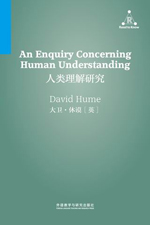人类理解研究
阿豆
The Philosophy of Skepticism The author also devotes his book to an
analysis of skeptical philosophy. He argues that there are excessive
skepticism and moderate skepticism. The ancient Greek Pyrrhonian
skepticism is excessive skepticism, which is not beneficial to society
and therefore will not have a long-lasting influence, while his own
skepticism "advocates limiting our research to those topics best
suited to the narrow faculty of human understanding", which is
moderate skepticism, beneficial to society and therefore will endure.
The author is subjectively opposed to Pyrrhonian skepticism and
advocates taking into account the limits of understanding in the process
of recognition. Posthumous Influence The philosophical ideas that
Hume expounded in his book have had a great influence on modern Western
philosophy. First, his skepticism was still "the form of all
non-religious philosophical thought" in 19th century England.
Secondly, Hume's influence on Kant's philosophical thought is also well
known. Third, although Hume's thoroughgoing empiricism put an end to
traditional Western empiricism in the modern era, it provided the
theoretical premise for modern Western empiricism. The Study of
Human Understanding, which takes subjective impressions as the basis of
all knowledge, avoids the fundamental problem of thought reflecting
objective existence while denying the dynamism of human cognition, and
confines knowledge to passive, narrow sensory experience, fully
revealing its one-sidedness. Hume's analysis of the concept of cause and
effect revealed the scientific law that sense experience cannot
establish universal necessity, which inspired Kant to make a more
profound exploration, and his skepticism contributed to the
transformation of Kant's thought. Various modern Western empiricist
philosophical schools, such as positivism and logical positivism,
inherited Hume's epistemological ideas. Evaluation of Works Clifton
Feldman, an American author of "A Lifetime of Reading": A
Study in Human Understanding is a book with no language barriers, but
still not easy to understand, because the author refers to various
primitive sensations he names "impressions".



 京公网安备 11010802032529号
京公网安备 11010802032529号